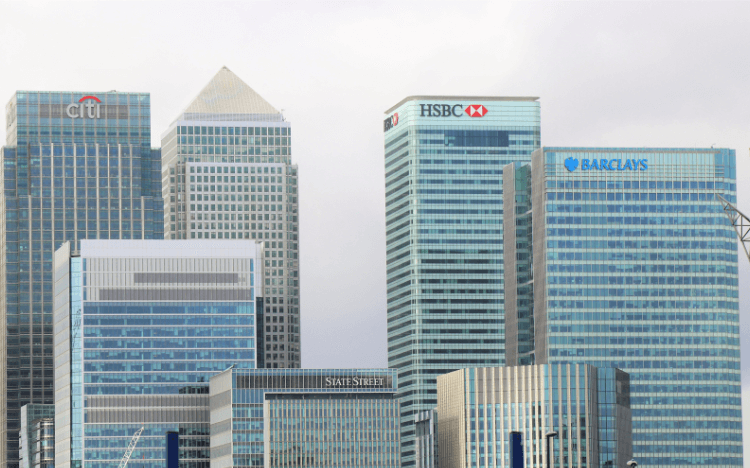Investment banks are renowned as workplaces where the hours are long and the pay is rewarding. When it comes to careers in investment banking, salaries are a key reason why large numbers of business school students choose it as their preferred path each year.
Similar to industries like consulting and technology, bonuses are commonplace and often make up a significant percentage of an employee’s overall compensation package. While an investment banker base salary could easily exceed six figures, their bonus will often do the same.
So, what’s the difference in salary between an MBA in investment banking and a Master’s grad? And how do investment bankers’ starting salaries compare with those further along in their careers?
Well, using data sourced from industry training platform Wall Street Prep, we’ve broken down the average investment banker salary for both MBA and Master’s graduates, including their average compensation packages upon entering the industry and how this increases over time.
So if you’re wondering just what the salary of an investment banker is, here’s what you need to know.
Considering A Career In Finance?
Download Our Free Careers In Finance Guide
Investment Banking Salaries: MBA Breakdown
What is the average investment banker salary after an MBA in the US?
MBA graduates typically enter investment banks at the level of associate. In the US, recruiting usually starts with places available for summer associate internships which take place between the first and second years of study.
Those who are successful during the summer internship will then land full-time offers, returning to firms toward the end of the following summer after completing their MBAs.
In the US, New York is where MBA graduates can find the largest number of opportunities with investment banks. Bulge bracket banks (the world's largest) in New York are where MBAs landing investment banking associate roles can maximize their earning potential. Some of the more prestigious boutique banks may offer even larger compensation packages, while earning potential is lower at banks outside of the bulge bracket.
Investment banking roles based outside of New York with smaller, more regional-focused firms will typically also offer lower compensation packages.
After joining as a first year investment banking associate, the starting salary at the bulge bracket banks and elite boutique firms in New York is $150,000. These firms typically keep their salary offerings consistent with one another to remain competitive.
Because of the timing of when MBA grads enter investment banks in full-time roles, their first experience of receiving a bonus will come before they have spent a full year with the firm.
Known as the ‘Stub-Year’, grads’ first bonuses will be based on the five months they spend from the summer until the end of December, with bonuses being paid out in January and February alongside the rest of the firms’ employees. Stub-Year bonuses tend to be valued at between $30,000 and $40,000 at New York-based firms.
Often, new investment banking associates will also be offered a relocation or signing bonus. This can reach as high as $60,000, though the exact figure will vary between firms.
How do investment banking starting salaries for MBA grads compare outside the US?
Looking further afield to opportunities outside of the US, MBA graduates from top business schools can find opportunities with investment banks based in major financial hubs such as London and Zurich. A highly locational-focused career path, outside of major financial hubs the opportunities in investment banking decline significantly.
Again, in these locations firms tend to keep their salary packages relatively consistent with each other in order to remain competitive during recruiting. However, earning potential in investment banking outside of the US tends to track at a lower rate, similar to other industries.
Stub-Year associates outside of the US will typically earn £80,000 ($102k) on average, while their bonuses will be valued at between £25,000 ($32k) and £30,000 ($38k). Those who receive a signing bonus will earn a maximum of an additional £30,000 ($38k).
©Expect Best / iStock
How do investment banker salaries increase over time for MBA grads in the US?
Investment banker associates can expect to see their compensation packages grow at a significant pace in the years after they enter the industry.
MBAs in their first full year following the Stub-Year will earn the same salary ($150,000 at bulge bracket banks in New York), however their end-of-year bonuses will increase significantly to reflect the increased time period.
From this point onward, bonuses are less fixed, with exact amounts based on assessments of a combination of factors, including individual, group, and firm performance. First year investment banking associate bonuses in New York can range from $90,000 to $130,000.
For second year investment banking associates, salaries tend to increase to $175,000. Some associates earn more than this, though their higher salaries are often offset by smaller bonuses.
Bonuses fluctuate significantly in year two, with top performers taking home bonuses that exceed their salaries. In the bottom performance bracket, bonuses will be around $100,000, while mid level performers will see a figure in the range of $140,000 to $180,000. The highest earners will earn up to $215,000 in bonuses alone.
Three years after graduating from business school and landing roles as investment banking associates, MBA grads reach a salary of $200,000. Again, some may earn more than this with a smaller bonus.
Third year associates will earn bonuses of around $120,000 at the lower end of the scale, with the best performers taking more than double that at up to $250,000. The mid level bracket at this point in an investment banking career is between $180,000 and $220,000.
How do investment banker salaries increase over time for MBA grads outside the US?
Bankers outside of the US can expect their salaries to follow a similar pattern, though at a lower overall salary level. One major difference when compared with the US, however, is that salaries in Europe tend to jump between the Stub-Year and first year.
In Europe, first year associates can expect their salaries to rise from £80,000 to £95,000 ($120k). They can also achieve bonuses of £60,000 ($76k) at the lower end of the performance bracket and £85,000 ($108k) for the highest earners.
In their second year, Europe-based MBAs in investment banking can earn £105,000 ($133k) in base salaries, with bonuses increasing to $85,000 ($108k) for bottom bracket performers and £110,000 ($140k) for top performers.
There are similar jumps for third year associates, with average salaries of £120,000 ($152k) and the lowest bonuses coming in at £90,000 ($114k) and the highest at £130,000 ($165k).
Investment Banking Salaries: Master’s Breakdown
What is the average investment banker starting salary for Master’s grads in the US?
Graduates of business master’s degrees such as finance, financial engineering, or accounting join investment banks at the level of analyst. This is typically for a two-year or sometimes three-year program, after which they can decide to move into associate roles or exit investment banking to find opportunities elsewhere.
Like at the associate level, the highest salaries can be found at bulge bracket and elite boutique banks in New York. Across the majority of top firms here, salaries start at $100,000. New hires may also receive a signing bonus of anywhere up to $10,000.
Despite joining in the summer after completing their degrees, unlike associates, bonuses for analysts have historically been paid out after grads have completed a full-year with their firms. However, according to Wall Street Prep this practice is shifting at a number of leading banks.
Those firms that do opt for Stub-Year bonuses will pay first year analysts between $30,000 to $35,000.
At non Stub-Year paying firms, after completing a full year in investment banking grads at the higher end of the scale can receive $100,000, while mid level performers will earn $90,000, and those in the lowest bucket will take home $70,000.
How do investment banking salaries for Master's grads compare outside the US?
For Master's grads It’s a similar story to MBAs when it comes to opportunities with investment banks outside of the US. For those working in major financial hubs like London, salaries are lower than in New York.
The typical starting salary for grads landing analyst roles is £60,000 ($76k), with some also able to secure signing bonuses which max out at around £5,000 ($6k).
When it comes to bonuses, these tend to begin at £35,000 ($44k) in year one, with mid and higher level performers earning £40,000 ($51k) and £45,000 ($57k), respectively.
READ: How To Successfully Land A Job In Finance
How do investment banker salaries increase over time for US Master’s grads?
At the analyst level, salary jumps within an investment bank are considerably lower than for MBAs who enter investment banking as associates. For each year spent at the firm, the salary jump is typically worth $5,000.
In their second year, investment banking analysts in New York tend to see their salaries rise from $100,000 to $105,000. The bonus range at this level is: $85,000 for lower end performers, $100,000 at the mid-level, and $115,000 at the top.
It is less common to see investment banking analysts stay for a third year, however those that do can expect to see their annual salary increase to $110,000. Third year analysts can also earn bonuses of $95,000 for lower level performers, $115,000 at the middle tier, and top performers can take home $125,000.
How do investment banker salaries increase over time for non-US Master's grads?
Outside of the US, investment banking analysts will see their salaries increase at a similar trajectory to their US counterparts. Again, however, banks pay at a lower overall salary level than in the states.
In year two, salaries for analysts at top banks in hubs like London increase from £60,000 ($76k) to £65,000 ($82k). While the bonus level remains the same for lower performers, bonuses for mid-level performers increase to £50,000 ($63k) and rise to £65,000 ($82k) for top performers.
Those who remain in investment banking analyst roles for a third year can earn salaries of £70,000 ($89k), with bonuses ranging from £55,000 ($70k) to £75,000 ($95k).
For more info about what it's like to work in investment banking, the perks and salaries you could gain, and tips on how to successfully land a job, download our BusinessBecause Careers In Finance Guide
*Exchange rates are accurate as of the time of writing and calculated to the nearest $1k






